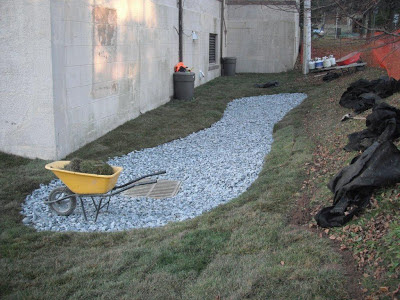Stormwater Management
Demonstration Site Launch
Join the Ecology Action Centre, and project partners, in launching Halifax’s first stormwater retrofit demonstration site.
With changing climate conditions and heavier rainfall predicted, it is more important than ever to understand how to manage stormwater effectively.
This event is for everyone interested in learning about alternative techniques for managing stormwater on site, in order to prevent damage to properties and municipal infrastructure, to save money and improve ecosystem health. We hope to see you there!
When: Tuesday November 27th, 2012
10:30 am, site tour at 11:00 am.
Where: Halifax Fire Station
5988 University Ave. (corner of Robie St.)
Will there
be Coffee? You bet!
This is a rain or shine event, so bring a
jacket and hope for… rain of course!










